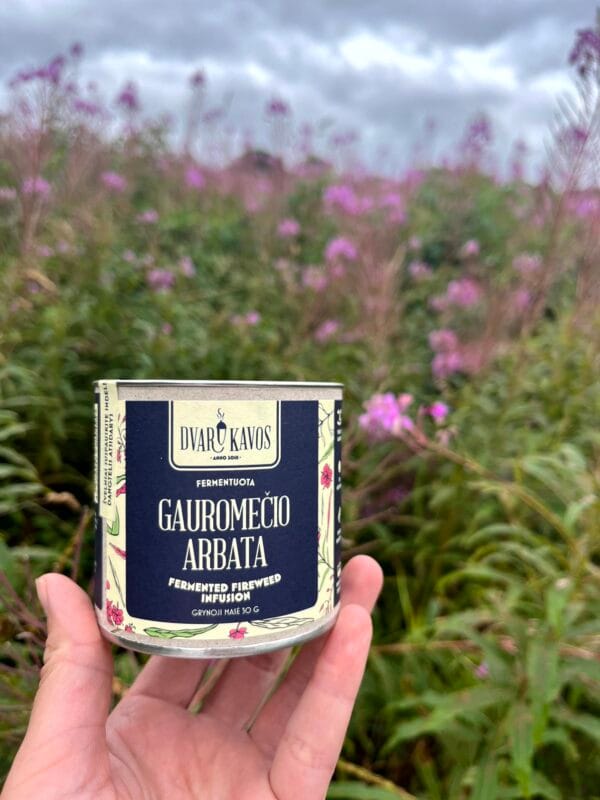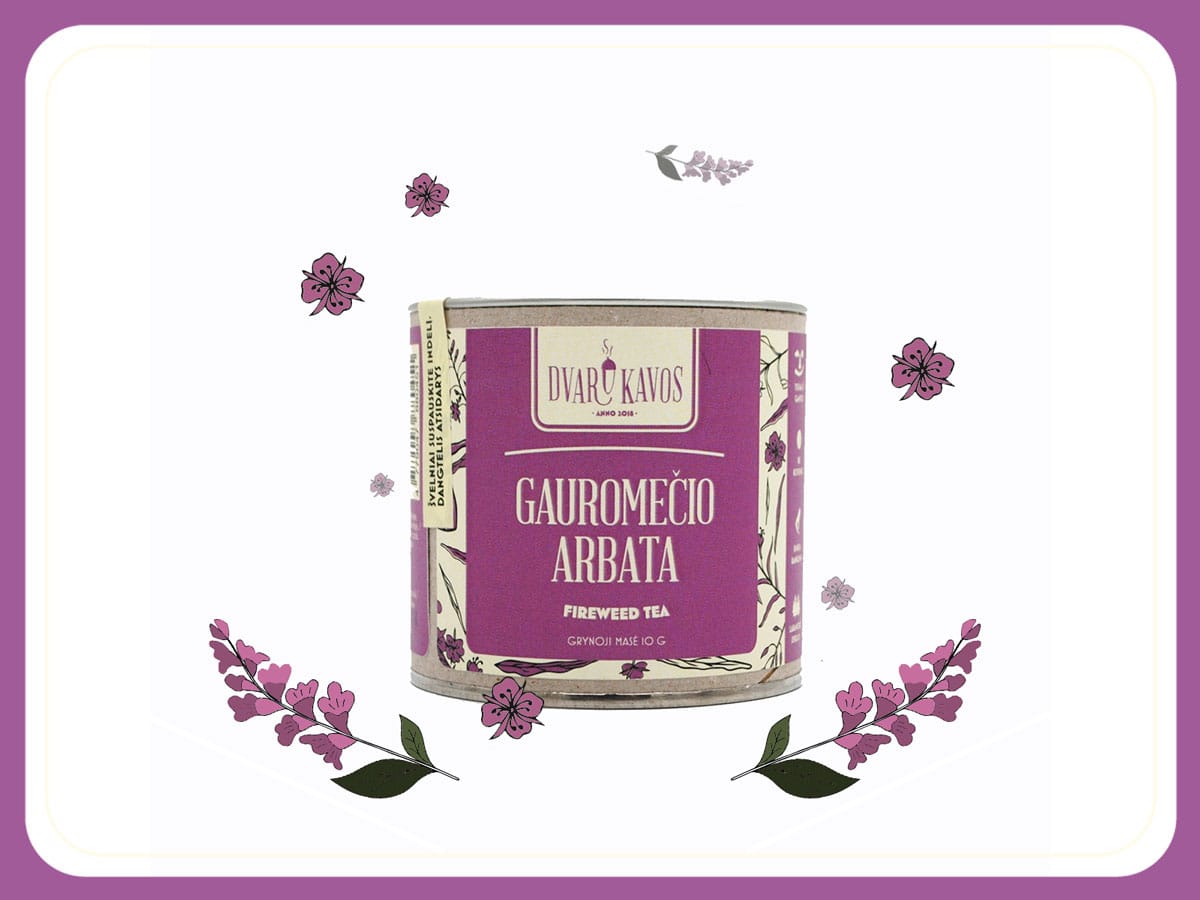You could write odes and books about gaurometis, its drinking traditions, health properties and fermentation methods, because there is so much! If there is any other plant that is so accessible to people, so well researched, so versatile and so suitable for everyday use, we would love to know about it.
Fireweed tea (Epilobium angustifolium) has long been used in Eastern and Northern Europe as an alternative to Ceylon tea, travelled through monasteries and was even highly valued in British India. One of its most popular English names, fireweed, refers to the plant’s ability to be the first to germinate in areas ravaged by fire. Widespread in Asia and North America, it has long been known in Lithuania and is a favourite in old ruins, forests, undergrowth and especially on hills.
Another popular name, Ivan chai, ‘stuck’ in the 19th century when Tsar Ivan of Russia began exporting this tea in large quantities to Europe. For obvious reasons, we would like to consign this name to the dustbin of history and enjoy the common knowledge of the whole of Eastern, Northern and Central Europe about the life-saving, health-giving herb of the fireweed, which does not belong to any king.

When we were planning new teas, we had long wanted to bring something from the Ukraine, from Zakarpattya to be precise. Not only for the divine mountain air and the purity of nature, but also for the opportunity to help the local herbalists, who are now in a crucial position to keep their jobs and economic cycles going. This summer we were finally lucky enough to visit Yevgeniy’s herb farm in the Carpathian foothills, where fresh, just-finished fermentations of the finest fireweed awaited us. Incidentally, the farm’s produce is certified organic, so we had a strong incentive to strive for this certification as well.

Ukrainians have not only recipes and observations about fireweed, but also fairy tales and myths about molfars, temperamental herbalists and witches who were able to both heal and control the natural elements. Herbs were considered to be gifts from the gods to the people, which could only be used correctly by those who knew more and taught others to use them.
In recent years, science has been paying more and more attention to this plant. Studies are being carried out on different fermentation methods and durations, and the properties of the raw material from different growing sites are being analysed. According to the latest data, it is generally agreed that extracts of fireweed have effective pharmacological properties, antioxidant, anti-inflammatory, antibacterial and anti-ageing effects on the human body.

Unfermented fireweed has more phytochemicals, but in lower concentrations, and less antioxidant activity than fermented fireweed, but more of the valuable inflammation-inhibiting tannin, enotein B, which is increasingly being studied (especially for its anti-cancer properties).
Fermented fireweed is rich in polyphenols and flavanoids and carotenoids. Tea made from both methods is an excellent source of vitamin C and iron, and is therefore suitable for both colds and severe illnesses.
Allergy sufferers are advised to drink it over a longer period of time, as the hesperidin and quercetin in the tea inhibit the release of histamine and reduce allergic reactions.
Skin beauty is enhanced by the abundance of flavanoids, which stimulate collagen synthesis and strengthen connective tissues and small blood vessels, with rutin in particular.
Anthocyanins are actively involved in the blood circulation processes in the retina of the eye and in the regeneration of brain and heart tissues, thus strengthening, supporting and protecting. They also help with urinary tract disorders, gastric irritation, and have even been reported to have a positive effect in irritable bowel syndrome.
Of course, for the health effects to be felt and guaranteed, long-term use of the herb and, above all, harmony between lifestyle, emotional health and diet are essential.
In terms of taste, fermented fireweed is appreciated by those who prefer a more pronounced taste and aroma compared to black tea. While a stronger drink may even have a pleasantly tangy astringency, unfermented fireweed tea is milder, lighter and suitable for daily chilled tea. We recommend flavouring fireweed tea with lemon and honey.

Above all, we invite you to discover it as a daily drink that gives you strength, not only physically but also emotionally, because the tradition of drinking it goes back to ancient times, when wisdom and health went together and herbs were the gods’ gifts to man.
References:
Applied Sciences, 2020
Frontiers in Pharmacology, 2022
Plants, 2020
Phytotherapy Reasearch, 2013
Žemės ūkio mokslai, 2018
© The copying and distribution of any visual or textual information found on the website www.dvarokavos.lt is strictly prohibited without the consent of MB ‘Užupių manufaktūra’. If you have any questions regarding the use of the information on this website, please contact info@dvarokavos.lt.
